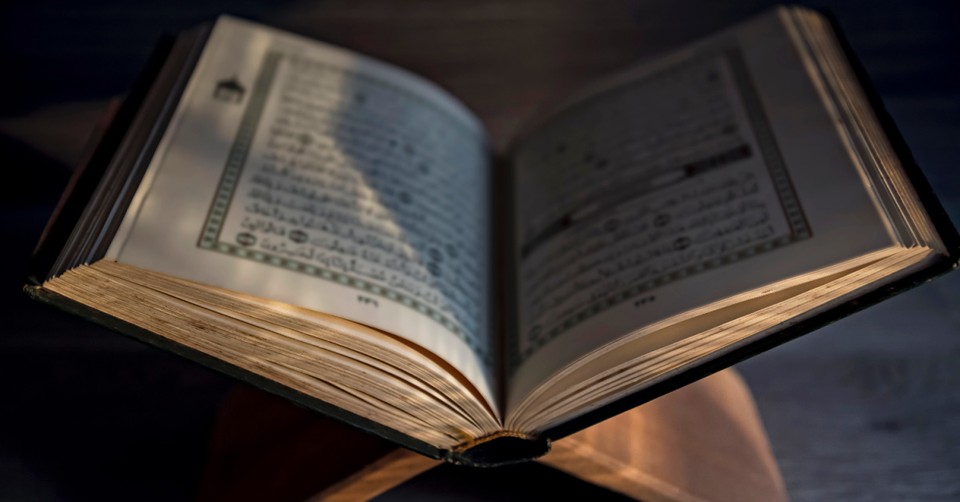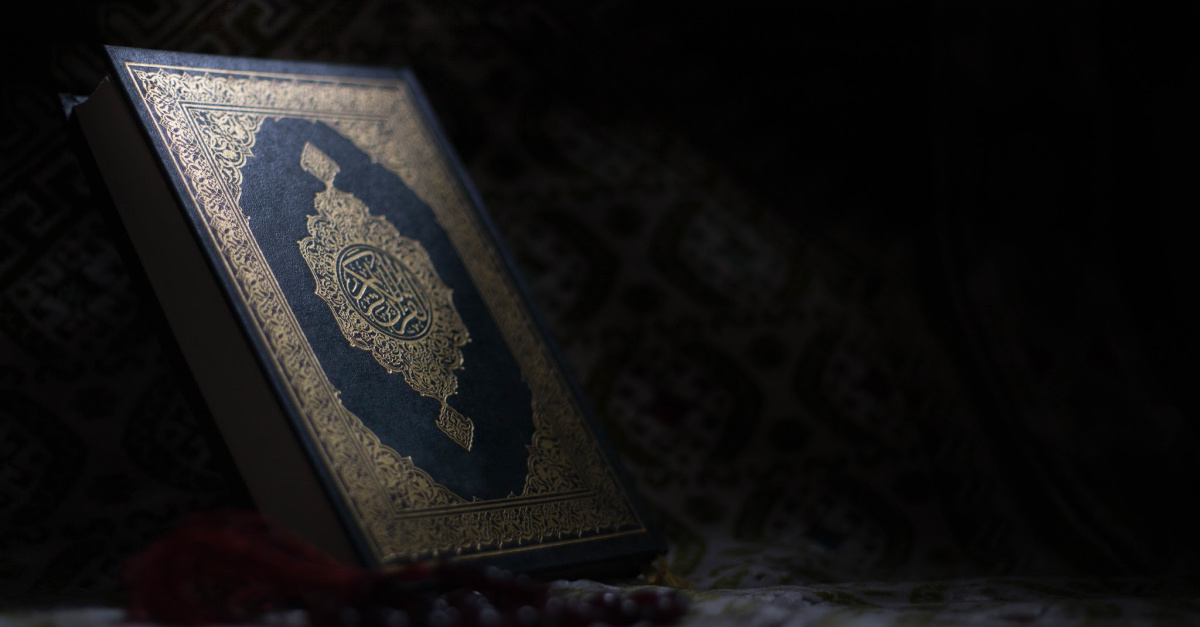Q&A with a Muslim about Our Differences and Similarities - Part 1

Years ago, back in my college days, before I took a deep dive into the religion I claimed since birth, I had this attitude of accepting almost any and all religions as true. I regarded them as “religions of love,” noting that there were similarities between these faith systems and my own, both in divine references and spiritual teachings. One of those religions was Islam, the world’s second-largest religion and most prominent in parts of Africa and southwest Asia.
Now, if asked back then to provide evidence of the similarities, my logic would have fallen short and swift. My emotions validated what I assumed – their religions were just like mine, a bit different, but still valid.
Today, with less emotion and more logic in tow, I can confirm that certain religions do have similarities, but there are also stark differences. Nor can I call all religions, religions of love, because not every belief system supports love - to will the good of the other. And while some religions strive for truth, others do not. Even in striving, not all religions can be true.
Without studying, who am I to say one way or another? Who are any of us to say one way or another?
Past curiosities don’t puzzle me as much these days, but where ignorance remains, I still see a chance to learn. That explains why upon meeting David Zia, randomly at the public library, and building a subsequent relationship, I decided to try my hand at asking questions.
We’re two men, similar in age, attitude, temperament, and intellect, but our religions are different. Similar, but definitely different.
Where others see differences, they often turn around and run, but as Christians, there’s a benefit to learning why people think the way they do. The more we know, the better we can relate and communicate. Whether that’s talking to an atheist about gender ideology or a fellow Christian about Catholicism, there’s so much we can learn when we decide to sit down and converse.
Now, here’s my Q/A with a Muslim about religious differences and similarities.
Background and Upbringing
Tell me who you are and where you’re from.
I’m David. I’m 22 years old and am an Afghan-American who's been living in Virginia for the past ten years. The answers provided in this Q&A are from my orthodox mainstream view and do not represent all of the Muslim community.
Also, I am just a regular Muslim who loves to learn, but I am by no means a scholar or an expert. Please excuse any mistakes that I may have made.
Why did your family move to America?
Mostly for economic reasons, but also a side benefit of more freely practicing our faith.
Talk to me generally about your family structure, parents, siblings, etc.
Afghan family structure is very hierarchical and mostly male-dominated. Mine was no different. When my father was alive, he was the sole breadwinner and sole decision-maker. After his death, that role fell upon my other male siblings and me. In general, my family operates in a traditional way regarding most things.
Similarities and Differences in Our Religions
When you think of similarities between our religions, what comes to mind?
We believe in a creator that brought everything into existence. We believe in the existence of Christ, his status as the Messiah, and the miraculous nature of his birth. Also, we share many beliefs regarding the prophets of the Old Testament.
Not only do Muslims believe in Jesus and his mother, we also hold them in high esteem. In general, Muslims and Christians have the same attitude towards life in that we strive to please God and to hopefully reunite with him in the next life and avoid hellfire.
When you think about the differences between our religions, what comes to mind?
The biggest difference is that we Muslims believe Jesus was a prophet, but only human. We affirm his holy birth and his miracles, but we see those as things that God gave to Jesus and not in connection with Jesus being the same entity as him.
To us, the holy birth of Jesus is like the creation of Adam, who had no parents.
There are many minor differences as the two religions operated at different time periods and dominated different parts of the world.
Beliefs about Salvation
What does the Quran say about salvation? Must you be a Muslim in order to reach Heaven?
Yes and no. Salvation in Islam comes from both being a believer as well as doing good actions. Allah says in surah 103, verses 2 and 3, “Surely humanity is in grave loss, except those who have faith, do good, and urge each other to the truth, and urge each other to perseverance.”
There are caveats, however, that will be presented on the day of judgment for those who were born into different faiths and did not get receive the message of Islam clearly in their lifetimes. We hope for many good Christians to fall into this camp.
Can salvation be lost?
Yes, if one is a believer in God and does good deeds, but for whatever reason decides to leave the faith and then dies in that state, then they can be doomed to hellfire.

Photo Credit: ©Getty Images/Undefined Undefined
The Quran
The Bible is a compilation of manuscripts written by different authors over the span of 1,500 years. Some noteworthy figures include Peter, Paul, and David. Do any Bible figures also appear in the Quran?
Yes, many of the prophets of the Old Testament are vividly described in the Quran by the prophet Muhammad. We see the Quran and our prophet as the continuation of biblical traditions. Genealogically, we trace the roots of Prophet Muhammad back to Ishmael, the oldest son of Ibrahim (Abraham).
Several of the biggest chapters in the Quran are named after biblical figures such as Imran (the father of Mary), Mary (the mother of Jesus), and Joseph (the son of Jacob).
What is Islam’s account of the creation story, and does it involve Adam and Eve?
Similar to the Genesis story, Adam and Eve were molded by God in his image in Heaven, but then were kicked out for committing the “original sin” and banished to earth ‘til the day of judgment.
His progeny (all of mankind from the beginning until the end) will then live on Earth and be tested to see who amongst them will do what. So God has bestowed man with the choice to do good or evil.
How long is the Quran, and how is the book divided?
Our book contains 114 chapters or surahs, and each one is divided into ayats, or verses. Then there are two classifications for surahs. 28 of them were revealed in Medinah and 86 in Mecca.
Who wrote the Quran, and when?
The Quran was revealed between 610 and 632 CE. We believe the Quran is the spoken Word of God and that it has been unchanged since being revealed. The Quran came down to the Prophet Muhammad through the archangel Gabriel as a revelation in a verbal format. He memorized it and then taught his companions.
There were many companions that also memorized the entire Quran, and after the prophet passed away, they compiled it in written format. That final compilation by the original companions is the same Quran available to us today.
Absolute Truth and Our Religions
In the Bible, the church, over the years, has added and omitted certain passages, stories, and books. Has the same occurred with the Quran? How are these decisions determined?
Yes and no. As I stated before, after the original compilation of the Quran in the 6th Century AD, it has been, word for word, unchanged. This is an area of high contention amongst Muslims as scholars have differing perspectives on it. But there were verses and chapters omitted from the Quran by the prophet Muhammad and his companions only by the permission of God, such as the controversial satanic verses.
Some Christians deny the existence of things like evolution or dinosaurs because these ideas are not explicitly stated in Scripture. I wouldn't necessarily fall outside of this group either, depending on the idea being denied. Do you believe there is truth that exists outside of the Quran? And by that, I mean, can someone make a factually true observation or statement that is not mentioned in the sacred text?
Yes, as long as it does not fundamentally negate the scripture. For example, as Muslims, we do not deny the existence of dinosaurs or the theory of evolution in its entirety. We believe revelation has the ultimate purpose for man’s existence and hence, answers the why. We are also proponents of science as long as the scientific work does not negate or try to contradict scripture.
Science in Islam is a beautiful method of deciphering God’s creation and seeing how the universe is made and works.
I struggle communicating with Christians who are unable to think intellectually and in a non-literal fashion about the Bible or its related ideas. Is anti-intellectualism common in Islam or in your experience?
Unfortunately, yes. Most religious folks, from my experience, are extremely defensive about their faith and its guidelines, etc. This includes the Muslim community, where it's very hard to find religious people that are also intellectuals, or like to question things, including our own faith.
From my perspective, Islam holds the ultimate moral truth and guidance for mankind. Like any truth, it should be able to stand against questions and doubts textually, logically, and broadly about how it impacts society.
Conclusion
Wow! The amount of information we can learn just from asking one question, then another. And the more we converse with people of varying religious beliefs, the more we discover just how much we differ but also how much we’re alike. Is there more to religion than we realize or are we right to divide ourselves as we currently do?
And on the subject of communication, shouldn’t we be asking more questions of fellow believers? We build community, reconciliation, and a shared faith through discourse. Too many of us are prone to dismiss the other as non-Christian if they fall outside of our denomination. But is this the Christian way?
There are definitely ways we differ from one another, but also ways we are alike. We only find out when we ask.
If you want to read more from this interview, click here for Part 2.
Photo Credit: ©Getty Images/Kriangkrai Thitimakorn

Get in touch with him at aarondanthony.com and check out his debut short story anthology Honey Dreams on Amazon and Barnes and Noble.
Originally published November 15, 2022.







